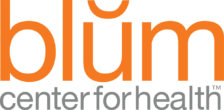There have been a number of recent studies trying to sort out the relationship between alcohol and health. This week, The British Medical Journal reported that alcohol increases the risk of cancer, especially all cancers of the mouth and digestive tract, including the liver, colorectal and breast cancer. The authors found that any protective effect on the cardiovascular system previously reported, is outweighed by the increased risk of cancer. Unfortunately for those considering themselves social drinkers, or who drink a few glasses of wine with dinner every night, “there is no level of alcohol consumption that can be considered safe”.
So, what should you do? While the majority of the increased cancer risk was for those drinking over 1 drink/day (women) and 2 drinks/day (men), under that level the cancer risk still increases with every drink. My suggestion is to cut back on your alcohol consumption as part of your cancer prevention program ESPECIALLY if you have a family or personal history of cancer. Your genetics might make you more susceptible. Avoid drinking every day, and choose red wine for the most cardio-protective effects. If you have a personal history of cancer, you shouldn’t drink at all.
Don’t forget to add other cancer prevention strategies to your lifestyle, all of which have been found to reduce your risk. Exercise, reducing those stress hormones, and eating a vegetarian based diet filled with organic fruits and veggies, shifting toward vegetarian proteins like beans, nuts, seeds, and yes even soy. Soy can be safely included in the diet in moderation, meaning 1-3 times/week for those with concerns about it (cancer, hypothyroidism), and more often for others. Make sure the soy is not genetically modified (should say so on the package), is organic, and is minimally processed (skip the boca burger).
There is less anxiety now about soy because the first clinical study on soy intake and women with breast cancer was published last summer, and this showed that those eating soy had a reduced rate of recurrence. For some, this just adds confusion, and to help figure out what is right for you, I suggest finding someone like myself, who can guide you through making these decisions as I believe recommendations are not one size fits all.
And finally, don’t forget there is so much more you can do! We look forward to sharing our approach with you at Blum Center for Health. We have Cancer Prevention cooking classes (description on the website), Functional Medicine tools for evaluating and reducing risk, and MindBodySpirit classes or consultations for self awareness and hormone balance. We will be putting all these tools together in our first semi-annual Cancer Retreat Weekend coming soon, so mark your calendars and call or email us for more information.
Hope to see you soon,
Susan Blum
